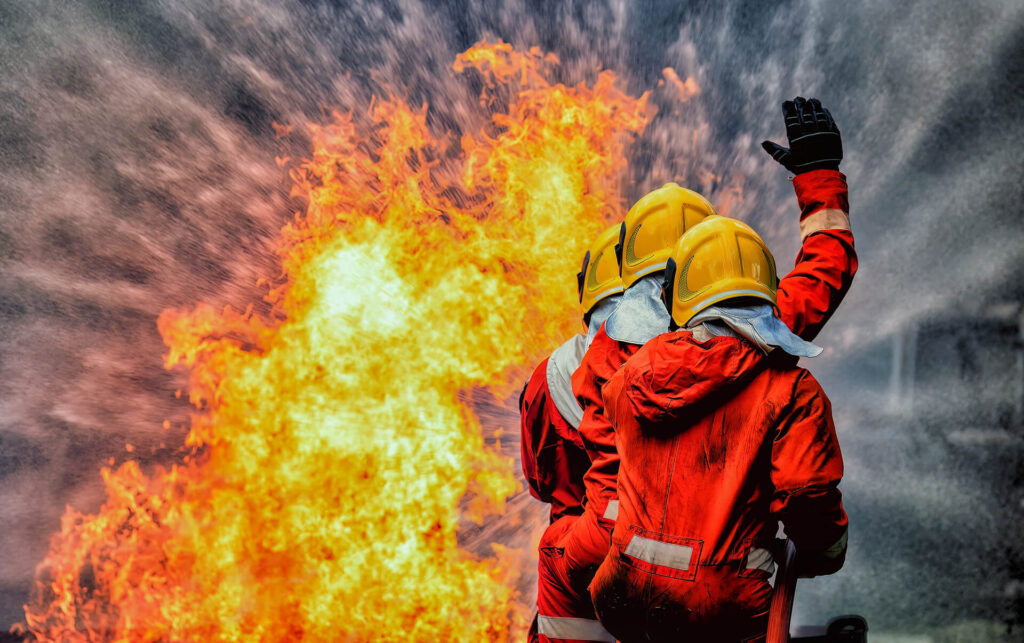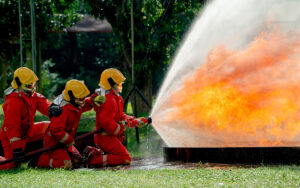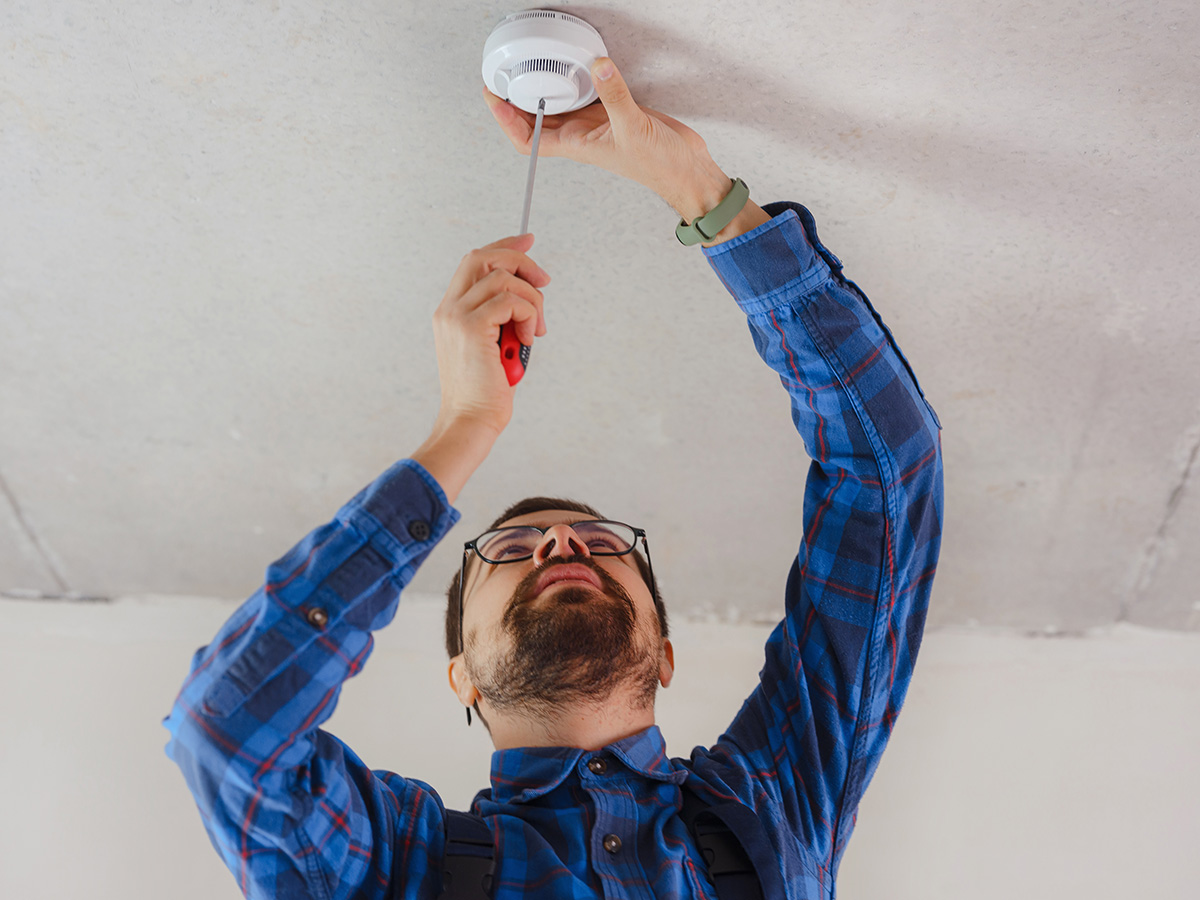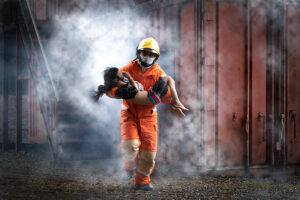Best Response To A Fire: Common Fire Hazards in Ottawa and How to Prevent Them
In the event of a fire, knowing the best response can save lives. Fires spread fast, and you need to act quickly. Whether it’s a house fire or a small blaze, preparation and awareness are crucial. If you live in Ottawa, here are common fire hazards and the steps you can take to protect your home.
Prepare in Advance: Practice Drills and Create a Family Plan
Preparation is the key to staying safe. Regular practice drills will help your family react quickly if a fire alarm goes off. Make sure everyone knows the evacuation plan and choose a designated meeting spot outside your home.
Choose a safe meeting place that’s easy to access. LB Electric offers some great suggestions on how to effectively plan these drills and ensure your home’s safety systems are in top shape.
Creating a family emergency communication plan is another important step. This plan should include how to get in touch with each other and the escape routes to take during a home fire.
LB Electric also recommends reviewing your electrical safety and ensuring everything is up to code, as faulty wiring can increase fire risks. During a fire, it’s important to keep doors closed to prevent the fire spread and buy yourself more time to evacuate.
Know How to Use a Fire Extinguisher
Fire extinguishers are your first defense against small fires. Having them in key areas of your home—like the kitchen and garage—is a must. But, you need to know how to use them properly. If a fire starts and it’s manageable, use a portable fire extinguisher and remember the acronym PASS:
- P: Pull the trigger handle.
- A: Aim at the base of the flames.
- S: Squeeze the handle.
- S: Sweep the nozzle side to side.
While fire extinguishers can handle smaller flames, don’t hesitate to evacuate if the fire is too large. Once you’re safe, call the fire department and wait for emergency responders to arrive.
Check Your Smoke Alarms
Smoke is one of the biggest dangers in a home fire. It can fill a room in seconds, making it hard to see or breathe. This is why having working fire alarms is critical. Install smoke alarms on every floor of your house, particularly in bedrooms. Test them monthly, and change the batteries at least once a year. These alarms give you precious time to evacuate before the situation worsens.
Plan Your Escape Route
When a fire starts, you need to act fast. Every second counts. Make sure your doors, windows, and escape routes are clear. Keep doors closed as you evacuate to slow down the fire. If the door feels hot to the touch, find another way out.
If flames block your escape route, use a wet towel to seal the cracks under the door and wait for help.
First responders will arrive as quickly as possible, but you need to be ready to act. If you live in a multi-story building, remember to use the stairs, never the elevators, during an evacuation.
Prevent Fires by Avoiding Common Hazards
Many home fires are preventable. Awareness of common hazards can drastically reduce risks.
Many home fires are completely preventable if you stay aware of common hazards around the house. Here are a few key risks to keep an eye on:
- Overloaded Electrical Outlets: Plugging too many devices into one outlet can cause it to overheat and spark a fire.
- Faulty Wiring: Old or damaged wiring is one of the leading causes of electrical fires. If your home hasn’t had an electrical inspection recently, it might be time to upgrade your wiring.
- Unattended Cooking: Kitchen fires happen fast—always keep an eye on your stove or oven when cooking. A small flame can turn into a disaster in seconds.
Always keep a fire extinguisher in the kitchen for emergencies. It’s also important to regularly check your other equipment, such as space heaters and appliances, to ensure they’re functioning safely.
If your home has older or faulty wiring, it may not be up to modern safety standards, increasing the risk of fire.
This is why upgrading to new home wiring is essential—services like those offered by LB Electric can ensure your electrical system is safe and up to code, reducing fire hazards and giving you peace of mind.
Installing additional fire alarms or a sprinkler system is a good investment. These systems can help extinguish a fire before it gets out of control. But remember, your main priority during a fire is to evacuate, not save belongings.
What to Do If Your Clothes Catch Fire
If your clothes catch fire, don’t panic. The best response is to stop, drop, and roll. Stop what you’re doing, drop to the ground, and roll until the flames are out.
Protect your head and face by covering them with your hands. This technique is a simple but lifesaving way to extinguish flames on clothing.
Call for Help: Don’t Re-enter the Building
In any fire situation, your priority is to get out. Once you’re safe, call the fire department right away. Don’t try to re-enter the building. Let the first responders and emergency personnel handle the fire—they’re trained for this. You should focus on keeping yourself and your family safe.
Keep Fire Exits Clear
A clear escape route can make all the difference. Ensure that all doors, windows, and stairs are free of clutter.
This helps not only you but also the building occupants and first responders to move through the space safely. In public buildings, be aware of pull stations and know where the nearest exits are.
Use the Right Equipment
Make sure you have the proper equipment to handle small fires. Keep a portable fire extinguisher on each floor of your home and ensure that everyone in your household knows how to use it.
Check that your smoke alarms and fire extinguishers are in working order, and replace them when necessary.
Final Thoughts: Protect Your Home and Family
The best response to a fire is to be prepared. Create a family emergency communication plan, practice fire drills, and maintain your fire alarms and fire extinguishers.
In a fire, keeping doors closed can slow the spread of flames and smoke, giving you time to evacuate safely. Stay safe, stay prepared, and remember—your life is more important than any possession.




